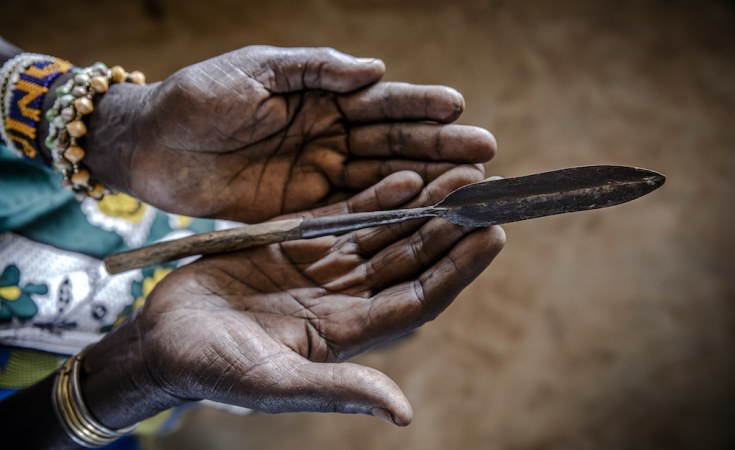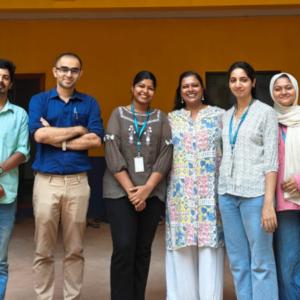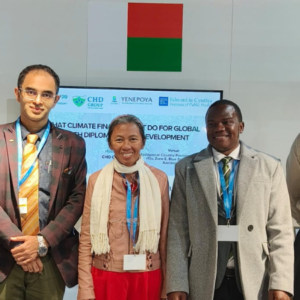Female circumcision has recently been facing criticism as a practice in The Gambia that is not only dangerous to the health and social well-being of girls and young women but is also perceived as conduct that violates the sexual and reproductive rights of these women. The World Health Organization (WHO) defines female genital mutilation sometimes called female genital cutting as all procedures involving partial or total removal of the external female genitalia or injury to the female organs for non-medical reasons.
Female circumcision is a widespread socio-cultural practice that is carried out in many countries around the world, primarily in Africa. Female circumcision is a controversial socio-cultural practice that continues to attract the attention of humanitarian organizations. Although many African countries including The Gambia have enacted legislation aimed at criminalizing this practice, successfully eradicating FGM has been a challenging process. This is primarily due to the resistance by people who are not only well-organized but also united in upholding common socio-cultural beliefs that sanction the conduct of FGM. In the Gambia, almost three-quarters of women (73%) aged between 15 and 49 have undergone FGM, according to the country’s demographic health survey 2019-20, and almost two-thirds (65%) were cut before they were five.
The controversial practice of genital mutilation or FGM is traditionally performed on women is widely practiced in Gambia particularly away from the urban areas and in the up-river rural areas. The procedure is also practiced by an estimated 7 out of 9 ethnic groups in Gambia. As of December 2007, no law prohibits any form of FGM. Its origins are unknown but female circumcision is known to have been performed on young girls before the birth of Islam or Christianity and cut across cultural and religious lines. In the Gambia, the practice of FGM has traditionally been conducted in a context of secrecy, and excision is seen as giving power to girls in their rite of passage into womanhood.
In local villages, instruments used to perform the procedure are usually not sterile and a traditional practitioner usually performs it with various crude instruments and without anesthetic. Often many girls are operated on during a single ritual ceremony. In these cases, the same razor or knife is often used on many girls. Among the wealthier sections of Gambian society, it may be performed in a healthcare facility by qualified health workers.
FGM, as it is practiced in The Gambia, is not regarded as an exercise involving the circumcising of girls alone. Female circumcision is also perceived as a rite of passage for women where cultures and traditions are handed down from one generation to the other. The procedure of FGM is mostly conducted in secluded areas where a group of women isolates themselves from the rest of society in their effort to transform these young girls into what they consider as a passage to womanhood. This includes teaching them about gender roles, family responsibilities, and other taboo subjects such as sexual intercourse, pregnancy, and menstruation, which are topics not openly discussed within the context of a family.
Several explanations have been provided as reasons why female circumcision is practiced in The Gambia. Some of these include that FGM is a religious obligation that is sanctioned by Islam, undergoing this practice will increase a woman’s prospect of marriageability, and FGM protects the virginity of a girl by preventing her from premarital sexual relationships. Those who support FGM often argue that it is a religious obligation supported by Islam. Most of the Gambian population is Muslim and according to the latest estimates from the national census, 95 percent of the population practices Islamic beliefs. However, not everyone agrees that the practice of FGM is sanctioned by Islam, and some religious scholars have argued that Islamic beliefs do not support female circumcision. It is also important to indicate that the practice of FGM in The Gambia is mostly linked to ethnicity, and according to, the Wolof ethnic group, which makes up 16% of the population, mostly does not practice FGM. In contrast, the Mandinka ethnic group who constitutes 42% of the population in The Gambia supports the practice of FGM.
The Gambia has signed many international conventions to promote and protect women’s rights, but the government has not yet taken concrete steps to ban FGM. However, on November 4th, 2015, a law was passed through parliament that made it a criminal offense for anyone to perform female circumcision in the country. Before the passing of the law, non-profit organizations such as Gambia Community on Traditional Practice (GAMCOTRAP), Think Young Women, Girls Agenda, UNICEF, and Action Aid were instrumental in raising awareness about the dangers associated with female circumcision. These groups worked at the grassroots level to educate women and girls about the health implications of FGM by engaging local Gambian communities in villages and towns across the country.
Recently, Gambian Women’s rights are under threat as The Gambia’s parliament discusses a bill to roll back a ban on female genital mutilation. Members of Gambia’s National Assembly have proposed legislation to repeal a national law prohibiting FGM. Political and religious leaders in the Gambia are threatening to introduce a bill to decriminalize female genital mutilation, eight years after the practice was outlawed. Members of the country’s national assembly have backed a proposal for the 2015 law to be scrapped while the Supreme Islamic Council has issued a fatwa condemning anyone who denounces the practice and calling for the government to reconsider the legislation.
A Statement by The United Nations in The Gambia on Protecting the Rights of Girls and Women from Female Genital Mutilation calls for continued allocation of appropriate budgets and human resources and implementation, monitoring, and effective enforcement measures on the law prohibiting FGM. Legal measures must be accompanied by awareness-raising campaigns to change societal norms, practices, and attitudes towards FGM. They continue to urge national authorities, lawmakers, young people, civil society organizations, and traditional and religious leaders to come together with a unified purpose to foster a society that prioritizes the health, well-being, and dignity of all girls and women in The Gambia. The United Nations in The Gambia reaffirms its strong commitment to supporting The Gambia’s efforts in upholding and protecting the rights and dignity of all its citizens, including women and girls.
About the Author: Cham Kebba Omar is pursuing Masters of Public Health (MPH)
Disclaimer: Views expressed are the author’s own. Edward & Cynthia Institute of Public Health or Yenepoya (Deemed to be University) are not responsible for contents or opinions reflected in this article.

Cham Kebba Omar
-
Cham Kebba Omar#molongui-disabled-link
-
Cham Kebba Omar#molongui-disabled-link




